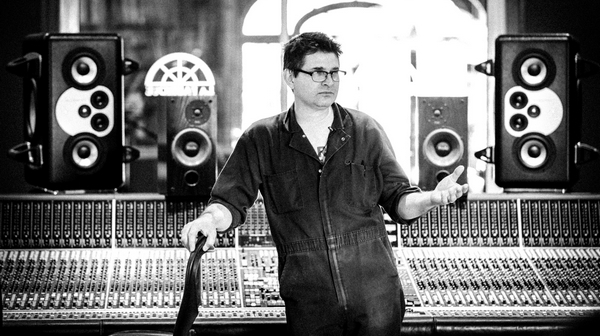“There have been other paradigm shifts in the music industry, and at every juncture when things have changed the established music industry reacted with horror, and not with a resignation that they had to adjust their expectations,” Albini says. “They made it seem as if it was morally wrong that things had to change.”
But what actually happened, Albini argues, is that these seismic changes resulted in an increased awareness and appreciation of music. Notwithstanding the dire predictions of musicians and industry executives, the Internet is actually a good thing for musicians. “As more and more musicians realise that they can operate without the participation of a music label, then those labels will be operating with a thinner and thinner back catalogue, and the arc of the technology will by-pass them completely,” Albini says.
In fact, Albini is so enamoured with technological developments that he believes they’ve gone a long way to addressing the problems he outlined in his 1993 Baffler essay, The Problem With Music. The problem with the music industry, Albini contended, was that it was laden with so many ancillary actors – managers, labels, publishing companies, public relations operatives – that any revenue generated from sales would inevitably be eroded well before reaching the creating artist.
But the Internet changes all of that – at least in Albini’s mind – for the better. More avenues of distribution means greater awareness and increased niche markets, all of which is good for artists. Most importantly, the ability of artists to market direct to their audience means they’re no longer captive to the industry model and the hidden costs therein.
“The efficiency of that [new] model means that people will be operating on a sustainable basis, on a smaller scale, which allows for much wider variety, which allows for more specialisation, which allows for musicians and audiences to interact in a way that’s uniquely suited to a certain kind of music or a certain frame of mind,” Albini says.
Albini also says it’s time to look critically at the issue of intellectual property, and in particular copyright. Originally a licence granted by the Crown giving people the right to print books, copyright has morphed into an economic interest. With the prevalence of piracy and streaming services (which, Albini agrees, pay a bare pittance to the artists featured), the value of that economic interest has become substantially diminished, to the detriment of artists.
While Albini recognises the importance of copyright, he believes the whole concept – especially the notion of ‘control’ of an artistic work – needs to be re-thought in an Internet world.
“What someone who originates a piece of work has is the first bite of the apple,” he says. “They can popularise it, monetise it first – sort of like the inventor of a mousetrap. If you have something first, you can exploit it first before anyone else.”
But with surplus distribution scenarios now available, claiming control of a musical product is an anachronistic assumption. “I feel like any music that’s released now has to be done with open eyes – that is, you have to realise that that’s how the world treats music now. It’s shared amongst enthusiasts, you don’t have exclusive control over music once you’ve released it,” Albini says. “I’m comfortable with that, but some people are not comfortable with that and they want to change the world so they can retain some semblance of control over the music once it’s released. I think that’s not realistic.”
Not surprisingly, Albini’s provocative assessment hasn’t been universally accepted. When he first asserted that the Internet is not a threat, but an opportunity, the reaction was predictably swift and harsh. However, Albini says he’s not just voicing his own opinions, but those of his contemporaries.
“Perhaps I’m flattering myself when I say I’m being rational, but all of these opinions have been gleaned by me through consideration and experience and also through my interactions with other musicians – I’ve taken on the positions held and expounded by other musicians. So I take them at their word when they say their income goes up the more people share their music.”
Ever the pragmatist, Albini prefers a debate that’s rooted in rational argument, not the emotive pleas and hyperbolic assertions that often characterise the vexed issue of online file sharing and streaming services.
“I don’t think there’s anything necessarily religious or sacrosanct or insulting about taking a position, especially on an economic issue. When it’s purely a matter of money and why someone ought to be paid, or ought not to be paid, or feeling bad that someone’s not being paid – I feel these capitalistic positions are very easy to discuss rationally and I don’t think you gain anything by appealing to emotions when you’re not talking about someone’s personal attributes. What you’re talking about is a procedural thing or a practical matter of execution of business.”
BY PATRICK EMERY







